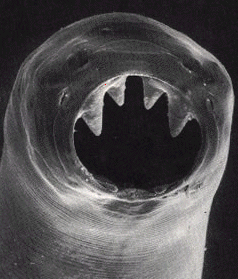
A while ago I listened to a BBC Radio programme about parasites. One interesting item in the broadcast was about a parasite that induces suicidal behaviour in rats. The parasite has a complicated life cycle. It passes through three hosts, the second of which must be a rat, and the third a cat. Rats are hard to kill. Rats do not like new things in their environment, because new things might be lethal. So if you put a trap down a rat is inclined to avoid it because it wasn’t there before. Rats also avoid light, and predators like cats. The parasite doesn’t like this caution. It needs the rat to be bold and get eaten by a cat, so it can move on to the next stage of its life cycle.
So it alters the rat’s brain so that it is no longer cautious. So that it becomes a kamikaze rat. The parasite gets what it needs but the rat gets eaten.
Yesterday I read about another study that has found another parasite that makes it host suicidal. In this case the host is a grasshopper and the parasite makes it drown itself.
A little research on the internet produced this item which has several more examples of parasites which can make their hosts behave in ways that are very much not in the hosts best interests.
I can understand the idea of a parasite which can make you ill, or even kill you. What I find staggering is that there are parasites which can modify the behaviour of their hosts to the extent that they can override such a fundamental urge as that of self preservation.
A couple of quotes from one of the articles
“Every living thing has at least one parasite that lives inside or on it, and many, including humans, have far more.“
“Scientists have no idea of the exact number of species of parasites, but they do know that parasites make up the majority of species on earth. By one estimate, parasites may outnumber free-living species four to one. Indeed, the study of life is, for the most part, parasitology.”
Are there parasites which are modifying our behaviour? I remember one of the experts that were being interviewed for the BBC Radio programme said there were. He gave an example of a parasite which was pretty common and was believed to be able to change human actions. Unfortunately, I cannot remember what the parasite did. If anybody knows please add a comment.
Where’s your free will now, Jimmy?
1 comment:
Charming!
Cheers,
Mr. H.K.
Postcards from Hell's Kitchen
And I Quote Blog
Post a Comment